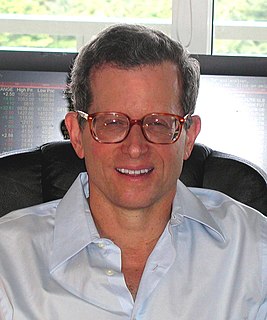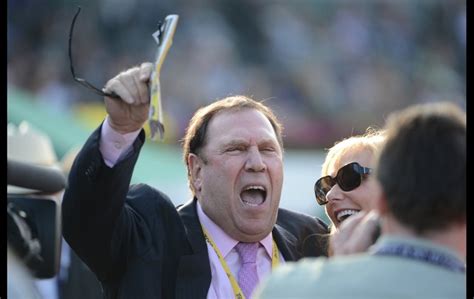Top 178 Quotes & Sayings by Famous Traders - Page 3
Explore popular quotes by famous traders.
I know of a few multimillionaires who started trading with inherited wealth. In each case, they lost it all because they didn't feel the pain when they were losing. In those formative first few years of trading, they felt they could afford to lose. You're much better off going into the market on a shoestring, feeling that you can't afford to lose. I'd rather bet on somebody starting out with a few thousand dollars than on somebody who came in with millions.
A man may see straight and clearly and yet become impatient or doubtful when the market takes its time about doing as he figured it must do. That is why so many men in Wall Street, who are not at all in the sucker class, not even in the third grade, nevertheless lose money. The market does not beat them. They beat themselves, because though they have brains they cannot sit tight.
People want to buy cheap and sell dear; this by itself makes them countertrend. But the notion of cheapness or dearness must be anchored to something. People tend to view the prices they’re used to as normal and prices removed from these levels as aberrant. This perpective leads people to trade counter to an emerging trend on the assumption that prices will eventually return to “normal”. Therein lies the path to disaster.
Don't think about what the market's going to do; you have absolutely no control over that. Think about what you're going to do if it gets there. In particular, you should spend no time at all thinking about those rosy scenarios in which the market goes your way, since in those situations, there's nothing more for you to do. Focus instead on those things you want least to happen and on what your response will be.
Disregarding the big swing and trying to jump in and out was fatal to me. Nobody can catch all the fluctuations. In a bull market your game is to buy and hold until you believe that the bull market is near its end. To do this you must study general conditions and not tips or special factors affecting individual stocks.







